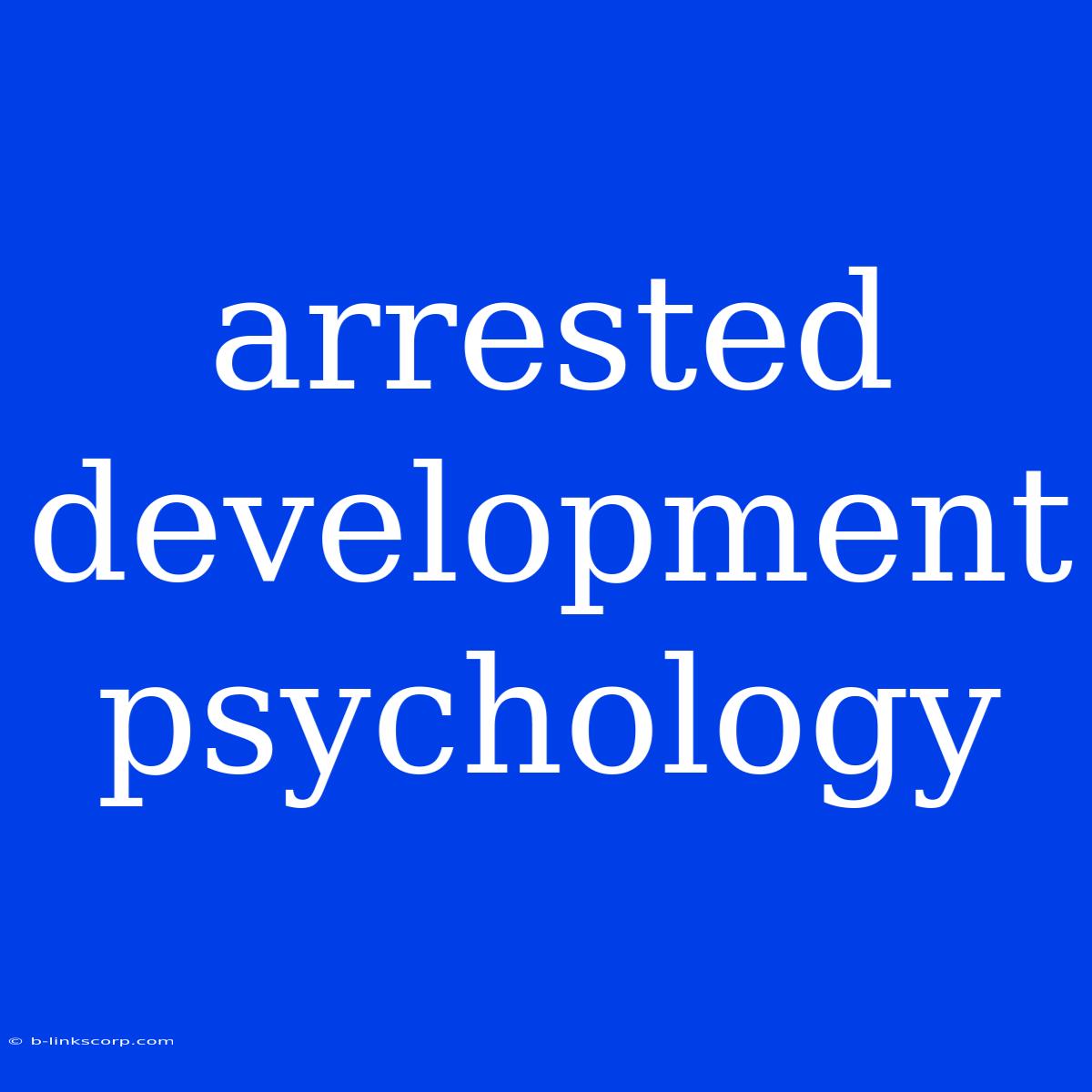Arrested Development: A Psychological Perspective
Arrested development is a term used to describe an individual who fails to progress emotionally and psychologically beyond a certain age. It is characterized by a stagnation in development, leading to a disconnect between their chronological age and their emotional maturity. This can manifest in various ways, impacting their relationships, career, and overall well-being.
Understanding the Roots of Arrested Development
1. Early Childhood Trauma: Experiencing trauma in childhood, such as neglect, abuse, or loss, can significantly disrupt healthy development. These experiences can leave lasting emotional scars and hinder the ability to form secure attachments and develop healthy coping mechanisms.
2. Insecure Attachment Styles: Individuals with insecure attachment styles, particularly avoidant or anxious-ambivalent, are more prone to arrested development. They struggle to form stable relationships and may experience difficulties with intimacy and emotional vulnerability.
3. Family Dynamics: The family environment plays a crucial role in shaping emotional development. Overprotective or overly critical parents can stifle independence and emotional growth, contributing to arrested development.
4. Personality Traits: Certain personality traits, such as perfectionism, low self-esteem, and a strong need for control, can contribute to a reluctance to embrace change and new experiences, leading to stagnation.
Signs of Arrested Development
1. Immature Behavior: Engaging in childish or irresponsible behavior, such as avoiding responsibilities, seeking constant reassurance, and blaming others for their problems.
2. Difficulty with Intimacy: Struggling to form meaningful relationships, being afraid of commitment, or displaying emotionally distant behavior.
3. Lack of Personal Growth: Resisting personal challenges, avoiding self-reflection, and failing to learn from past experiences.
4. Substance Abuse: Turning to drugs or alcohol to cope with emotional distress and avoid facing difficult situations.
5. Poor Decision-Making: Making impulsive choices, lacking foresight, and failing to consider the consequences of their actions.
The Impact of Arrested Development
1. Relationship Issues: Difficulty forming and maintaining healthy relationships due to emotional immaturity and communication problems.
2. Career Challenges: Struggling with responsibility, lacking self-motivation, and facing difficulty taking on leadership roles.
3. Mental Health Issues: Increased risk of anxiety, depression, and other mental health disorders due to emotional dysregulation and unmet needs.
4. Societal Challenges: Difficulty contributing to society in meaningful ways, often requiring external support and guidance.
Seeking Help
1. Psychotherapy: Therapy can provide a safe and supportive space to explore the underlying causes of arrested development and develop healthy coping mechanisms.
2. Support Groups: Connecting with others who have similar experiences can provide valuable support, understanding, and strategies for managing the challenges of arrested development.
3. Self-Reflection and Personal Growth: Engaging in self-reflection, seeking out personal growth opportunities, and developing healthy habits can contribute to positive change.
4. Building Healthy Relationships: Seeking out supportive relationships and fostering healthy communication patterns can promote emotional well-being and personal growth.
Conclusion
Arrested development is a complex issue with various underlying causes and potential impacts. Understanding the signs and seeking help from professionals can significantly improve individuals' well-being and quality of life. With support, individuals can begin to address their emotional needs, break free from stagnation, and experience personal growth and fulfillment.

